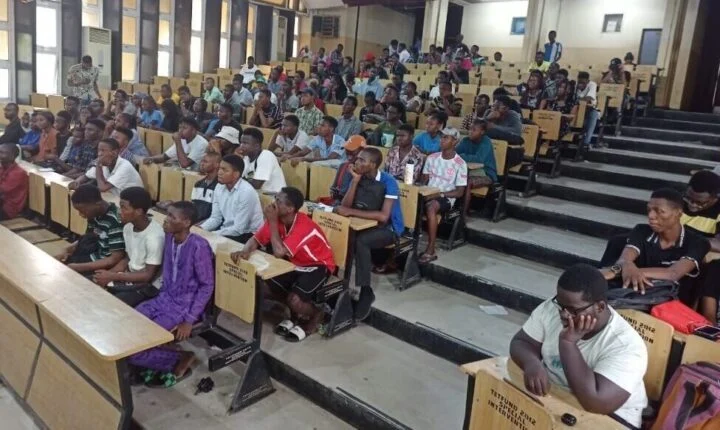Education
BREAKING: FG Sets New Minimum Age for University Admission
The Federal Government warned that any attempt by institutions to manipulate or falsify age records…

The Federal Government warned that any attempt by institutions to manipulate or falsify age records in order to bypass the minimum admission age requirement of 16 years would attract strict sanctions.
The Federal Government has officially set 16 years as the minimum age for admission into Nigerian tertiary institutions.
The Minister of Education, Dr. Tunji Alausa, made this announcement on Tuesday in Abuja during the 2025 policy meeting of the Joint Admissions and Matriculation Board (JAMB).
“This policy decision reflects a balance between cognitive maturity and academic preparedness. 16 years is non-negotiable,” the minister said, insisting that no tertiary institution should admit candidates below that age.
Dr. Alausa noted, however, that exceptions would exist only for gifted children who have clearly documented and justified accelerated academic progression. He warned that any attempt by institutions to manipulate or falsify age records would attract strict sanctions.
In a related development, the minister announced a renewed government effort to fight examination malpractices, which he described as a “cancer” eroding merit and public trust in the education system.
DON’T MISS: FULL LIST: JAMB Announces Top 10 2025 UTME Scorers
To combat this, he unveiled the creation of a Central Examination Malpractice Unit within the Federal Ministry of Education, which will be headed by the ministry’s Permanent Secretary, Abel Enitan.
According to Dr. Alausa, the unit will serve as a national clearing house for documenting and reporting malpractice cases across all levels of education. “This central database will be accessible to all institutions. It is our hope that this will reduce the tendency to engage in malpractices, as offenders will be appropriately tried under the Exam Malpractices Act,” he stated.
The minister also reaffirmed the Federal Government’s backing for WAEC and NECO to adopt computer-based testing (CBT) methods, noting that this shift would further curb the menace of cheating and ensure the integrity of national examinations.























You must be logged in to post a comment Login